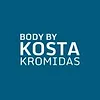Let’s take a moment to talk about protein. If your goals are to build muscle and lose fat, then ensuring you are getting enough protein is a very good start. Protein’s main contribution is to build muscle and to inhibit muscle atrophy; it also serves as a tertiary fuel source, however, only in survival situations. They are essential for tissue-building and repair, synthesis of enzymes and hormones, as well as being critical to our immunity response. In general, protein and athleticism go hand in hand, so let’s look at what this important macronutrient really does for us and how it can complement our training and all the hard work we put in at the gym.
Don’t miss out on protein! It should be included in every meal. Unlike carbs and fats that can be reduced or excluded at certain times of the day, protein should never be missed at any meal in order for any eating plan to be successful. Protein is the body’s muscle building component and is comprised of amino acids, nine of which are essential to be obtained through the diet in order to prevent protein/energy malnutrition.
But how much protein do we really need? Well that will depend on your level of activity, but for the average desk-bound male, it’s around 0.5 grams of protein per pound of body weight per day, but this number doubles for endurance athletes or committed gym-goers. When we create personalized meal programs for people, we calculate the required grams of protein based on their weight. For example, if a man is weighing 150lbs then we know he needs about 150 grams of protein a day. Now we take that number and divide it by 5 to get the number of grams he need per meal. So, now we know he needs to eat 30 grams of protein in each of his 5 meals. When protein is spaced out evenly throughout the day, it helps to keep our energy levels up and stops us from having hunger pains.
Does that seem like a lot? Well, if you find it challenging to get in that much protein in every meal, then supplementing with protein shakes is a great alternative. They are handy to have on the go, after a hard training session and before bed. There are two main types of powered protein that are conveniently designed to absorb at different rates depending on your needs. Whey protein is absorbed quickly and provides a more immediate supply of amino acids to the body (much like a simple carbohydrate) and this type is great for using post workout. On the other hand, casein protein supplies a much steadier stream of amino acids to the body–much like a complex carbohydrate, which breaks down slowly in the body. I always use casein right before bed because it keeps my muscles fed during the night. Do not use casein after a workout, because that is when you need to have the fast absorbing whey or isowhey.
All successful diet plans usually recommend that protein should be higher then carbohydrates and fats if your goals are to build muscle and lose fat. Your body type and general level of activity will influence these numbers, but on average your daily ratios should be close to about 50% protein, 35% carbs and 15% fats. So, go forth and have fun choosing your protein source, there are so many to keep it varied. And vegetarians are able to find plenty of protein in legumes, soy, nuts, vegan protein powders and even some veggies (remember how Popeye ate spinach, well he was really onto something!) So there is something for everyone.
Proteins are the building blocks of life and go hand in hand with any fitness program because they help you repair your muscles and make news ones. They help to shape your muscles and keep them toned, and we all want shapely muscle now don’t we? Think of proteins as the Lego blocks that build our entire body from the ground up. Now, what kind of body do you want to build? Well, that is up to you!
Written by Angel Simmons for KostaKromidas.com

